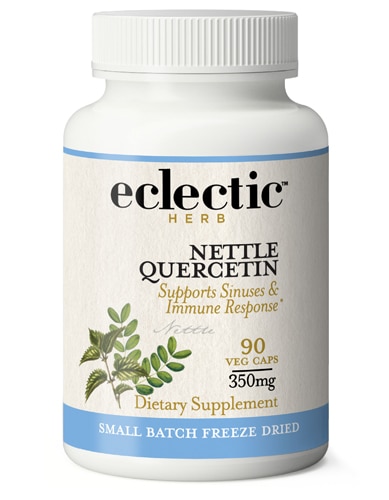[vc_row][vc_column][vc_column_text]Cardiometabolic health, also called "heart and metabolic health," is a broad term that covers the health of your heart and how your body handles fats and sugars. This includes things like blood pressure, cholesterol, and blood sugar levels, which are all important in avoiding conditions like heart disease, stroke, and diabetes. Keeping your cardiometabolic health in check is essential for living a long and vibrant life.
 Dr. Trevor Gillum
Dr. Trevor Gillum, a professor of kinesiology and the program director of exercise science at
California Baptist University (CBU) in Riverside, California, explains two of the most prevalent health issues that Americans face today’—heart disease and diabetes, are related to cardiometabolic health, so ensuring yours is functioning well is of utmost importance.
By maintaining good cardiometabolic health, you can significantly reduce the risk of these diseases, leading to a healthier and longer life. Understanding and taking steps to improve cardiometabolic health is an investment in your long-term health and wellbeing.
“The better we are at preventing these diseases, the healthier we are," says Gillum.
Factors influencing cardiometabolic health
Everyday habits in today’s society, like sitting for long periods, not exercising, eating poorly, and not getting enough sleep, all lead to declining cardiometabolic health. Research shows that taking breaks from sitting can help improve heart and metabolic health.
Essentially, poor cardiometabolic health is a direct result of lifestyle choices. While genes and environment play a role, these can often be overcome through consistent healthy habits across the lifespan, according to Gillum.
Studies indicate that the combination of cardiometabolic disease (CMD) and an unhealthy lifestyle can increase the risk of death by more than two times. Cardiometabolic disease is a term that includes a range of health conditions, starting from insulin resistance and advancing to more severe issues like cardiovascular disease and type 2 diabetes. Being overweight or obese, having high blood pressure, and dyslipidemia are common risk factors for these conditions.
However, following a healthy lifestyle can reduce the adverse effects of CMD on mortality
by up to 63%. Gillum explains the most considerable influence on cardiometabolic health is lifestyle habits: sleep, diet, and exercise.
“Few people who eat appropriately, engage in meaningful exercise, and exhibit healthy sleep hygiene will struggle with cardiometabolic health,” he says.
Sleep is essential for maintaining good cardiometabolic health. Lack of sleep can lead to increased blood pressure, higher levels of stress hormones, and inflammation, all of which can negatively impact cardiometabolic health.
Diet is another crucial factor. Research shows
a diet high in saturated fats, trans fats, and sugars can lead to obesity, high cholesterol, and high blood sugar levels, which are all detrimental to cardiometabolic health. On the other hand, a balanced diet rich in fruits, vegetables, whole grains, lean proteins, and healthy fats can help maintain good cardiometabolic health.
Since nutrition impacts almost everything about how your body works and everyone has to eat and drink each day, paying attention to your diet quality is the most
basic and practical way to improve cardiometabolic health and prevent CMD.
Exercise is perhaps the most influential factor. Regular physical activity helps control weight, reduces blood pressure, improves cholesterol levels, and enhances insulin sensitivity, all contributing to better cardiometabolic health.
In short, your lifestyle habits significantly influence cardiometabolic health. By making conscious choices to sleep well, eat healthily, and exercise regularly, you can dramatically improve your cardiometabolic health and reduce the risk of heart disease and
diabetes.
Recognizing poor cardiometabolic health
It's essential to recognize poor cardiometabolic health to improve it. Some signs of poor cardiometabolic health include high blood pressure, high blood sugar levels, high cholesterol levels, and obesity. You might also experience fatigue, frequent urination, excessive thirst, and blurred vision, which are common signs of diabetes.
To catch these signs early, regular health screenings are a must. These screenings should include checks for blood pressure, cholesterol, and blood sugar levels. Maintaining a healthy body composition, with a balanced ratio of muscle to fat, is also one way to ensure good cardiometabolic health.
It is worrying that approximately 30% of the global population is either overweight or obese, and even more alarming, cardiovascular disease (CVD) is the primary cause of death worldwide. In 2013, 382 million people were living with diabetes, which is expected to rise to 592 million by 2035.
A recent study published in the
Journal of the American College of Cardiology shows that less than 7% of American adults have good heart health. The research assessed the health of Americans based on five key components: blood pressure,
blood sugar, blood cholesterol, overweight, obesity, and cardiovascular disease. The study found that in 2017-2018, only 6.8 percent of adults had optimal levels across all five components.
These findings are concerning and highlight the importance of reducing cardiometabolic risk and preventing the development of cardiometabolic disease. It is crucial to be aware of the signs of poor cardiometabolic health and take proactive measures for early detection. This way, you can improve your health and reduce your risk of developing cardiometabolic disease.
How social factors and health differences impact cardiometabolic health
Cardiometabolic health
disparities exist among diverse populations and are usually influenced by social determinants of health. These are conditions in the environment where people live, learn, work, and play that affect a range of health outcomes. Socioeconomic status, education, neighborhood and physical environment, employment, and social support networks can significantly affect cardiometabolic health.
For example, people in lower socioeconomic groups often have limited
access to healthy foods and safe places to exercise, which can harm their cardiometabolic health.
Studies indicate that the easier and cheaper it is to get healthy foods in a city-based, low-income community, the lower the risk of heart and metabolic health issues.
Understanding these disparities and social determinants is the first step to developing strategies to improve cardiometabolic health for everyone. Good health should be a right, not a privilege.
Practical steps to improve cardiometabolic health
Improving cardiometabolic health involves making conscious lifestyle choices. Here are some practical steps you can take:
Exercise: Regular physical activity is crucial for
good cardiometabolic health. Aim for at least 150 minutes of moderate-intensity or 75 minutes of high-intensity exercise each week, including activities such as walking, running, cycling, or
swimming.
Your
heart becomes stronger and pumps more blood with exercise. Exercise also helps prevent and treat hypertension by improving blood vessel flexibility through consistent training. Dr. Gillum suggests moving more and focusing on activities you enjoy.
“Aim for 10,000 steps/day, and once this is fairly routine, build in some resistance training. Incorporate friends or a spouse for enjoyment and accountability. The goal is to create consistency since there are no quick fixes."
Sleep: Ensure you get adequate sleep each night.
The National Sleep Foundation recommends 7-9 hours of sleep for adults. Good
sleep hygiene, such as maintaining a regular sleep schedule and creating a restful environment, can help
improve sleep quality.
Dr. Gillum recommends trying to be in bed by 10:00 pm., which reduces late night eating and promotes a longer overnight fast. “Try to create an environment where quality sleep is facilitated,” he says. “A cool room, blackout shades, reduced screen time in the hours leading up to bed, etc."
Diet: Adopt a balanced diet rich in
fruits, vegetables,
whole grains, lean proteins, and
healthy fats. Limit intake of saturated fats, trans fats, and sugars. A
balanced diet is a cornerstone of good cardiometabolic health.
Some practical advice from Dr. Gilliam: Reduce the number of meals spent eating out, cook more at home, and focus on a balanced diet. “A key to assessing balance: look at your plate; you should see at least five colors represented. This is a good index of fruits, vegetables, and protein," he says.
Regular Health Checks: Regular health checks are essential for monitoring cardiometabolic health. These should include checks for blood pressure, cholesterol, and blood sugar levels. Early detection of any abnormalities can help in timely intervention and management.
“Outside of that, unhealthy body composition is a key risk factor, especially excess fat placed around the midsection," warns Dr. Gillum.
Supplements: Dietary supplements, such as Omega-3 fatty acids, certain vitamins, and minerals like
magnesium,
potassium, and
selenium,
can support a heart-healthy lifestyle when paired with a balanced diet and regular exercise. However, not all supplements are beneficial, with some, like beta carotene, associated with increased health risks. It's crucial to note that these supplements are not intended to reduce disease risk but to complement healthy lifestyle choices. Talk to your healthcare provider before starting any new supplements.
Avoid harmful habits: Some
unhealthy habits can also contribute to poor cardiometabolic health. It's helpful to manage stress, avoid tobacco use, and limit alcohol consumption.[/vc_column_text][/vc_column][/vc_row][vc_row][vc_column][vc_text_separator title="Featured Products" border_width="2"][vc_row_inner equal_height="yes" content_placement="middle" gap="35"][vc_column_inner width="1/3"][vc_single_image image="173363" img_size="full" alignment="center" onclick="custom_link" img_link_target="_blank" css=".vc_custom_1709225042705{padding-right: 7% !important;padding-left: 7% !important;}" link="https://www.vitacost.com/codeage-selenium-200-mcg-supplement-6-month-supply-immune-support-mineral-cofactor-selenomethionine-phospholipids-vegan-liposomal-delivery"][/vc_column_inner][vc_column_inner width="1/3"][vc_single_image image="173362" img_size="full" alignment="center" onclick="custom_link" img_link_target="_blank" css=".vc_custom_1709225067870{padding-right: 7% !important;padding-left: 7% !important;}" link="https://www.vitacost.com/bluebird-grain-farms-organic-whole-grain-emmer-farro"][/vc_column_inner][vc_column_inner width="1/3"][vc_single_image image="173361" img_size="full" alignment="center" onclick="custom_link" img_link_target="_blank" css=".vc_custom_1709225101330{padding-right: 7% !important;padding-left: 7% !important;}" link="https://www.vitacost.com/california-olive-ranch-extra-virgin-olive-oil-100-california"][/vc_column_inner][/vc_row_inner][/vc_column][/vc_row]
 Dr. Trevor Gillum, a professor of kinesiology and the program director of exercise science at California Baptist University (CBU) in Riverside, California, explains two of the most prevalent health issues that Americans face today’—heart disease and diabetes, are related to cardiometabolic health, so ensuring yours is functioning well is of utmost importance.
By maintaining good cardiometabolic health, you can significantly reduce the risk of these diseases, leading to a healthier and longer life. Understanding and taking steps to improve cardiometabolic health is an investment in your long-term health and wellbeing.
“The better we are at preventing these diseases, the healthier we are," says Gillum.
Dr. Trevor Gillum, a professor of kinesiology and the program director of exercise science at California Baptist University (CBU) in Riverside, California, explains two of the most prevalent health issues that Americans face today’—heart disease and diabetes, are related to cardiometabolic health, so ensuring yours is functioning well is of utmost importance.
By maintaining good cardiometabolic health, you can significantly reduce the risk of these diseases, leading to a healthier and longer life. Understanding and taking steps to improve cardiometabolic health is an investment in your long-term health and wellbeing.
“The better we are at preventing these diseases, the healthier we are," says Gillum.




